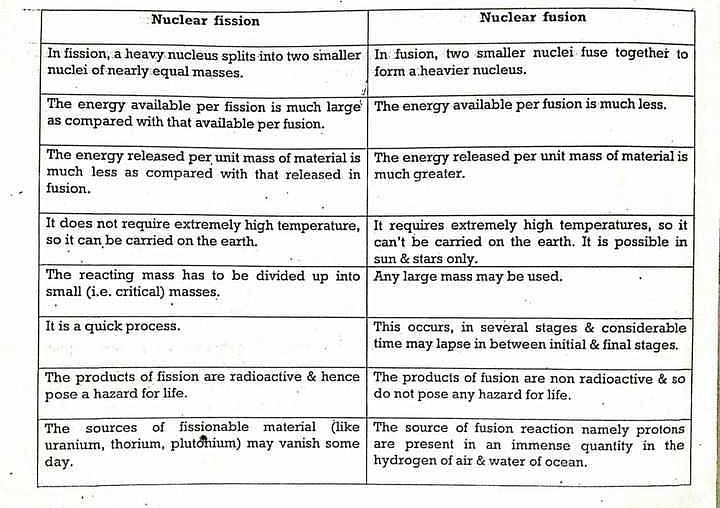Define the following terms: Mass Defect , Packing Fraction & Binding Energy
Define the following terms: Mass Defect , Packing Fraction & Binding Energy
1. Mass Defect: The mass defect refers to the difference between the mass of an atomic nucleus and the sum of the masses of its individual protons and neutrons. It arises from the conversion of mass to energy during the formation of the nucleus. The mass defect is responsible for the release of energy in nuclear reactions, as described by Einstein's famous equation E=mc².
2. Packing Fraction: The packing fraction is a measure of how tightly nucleons (protons and neutrons) are packed within an atomic nucleus. It is defined as the ratio of the actual mass of the nucleus to the mass of a hypothetical sphere in which the nucleons are assumed to be uniformly distributed. The packing fraction provides insights into the stability and density of the nucleus.
3. Binding Energy: The binding energy is the amount of energy required to completely disassemble an atomic nucleus into its constituent protons and neutrons. It represents the energy that holds the nucleus together and is equivalent to the mass defect of the nucleus. Binding energy is a crucial concept in nuclear physics and is responsible for the stability and cohesion of atomic nuclei. It is also a measure of the potential energy released during nuclear reactions or nuclear fission/fusion processes.
